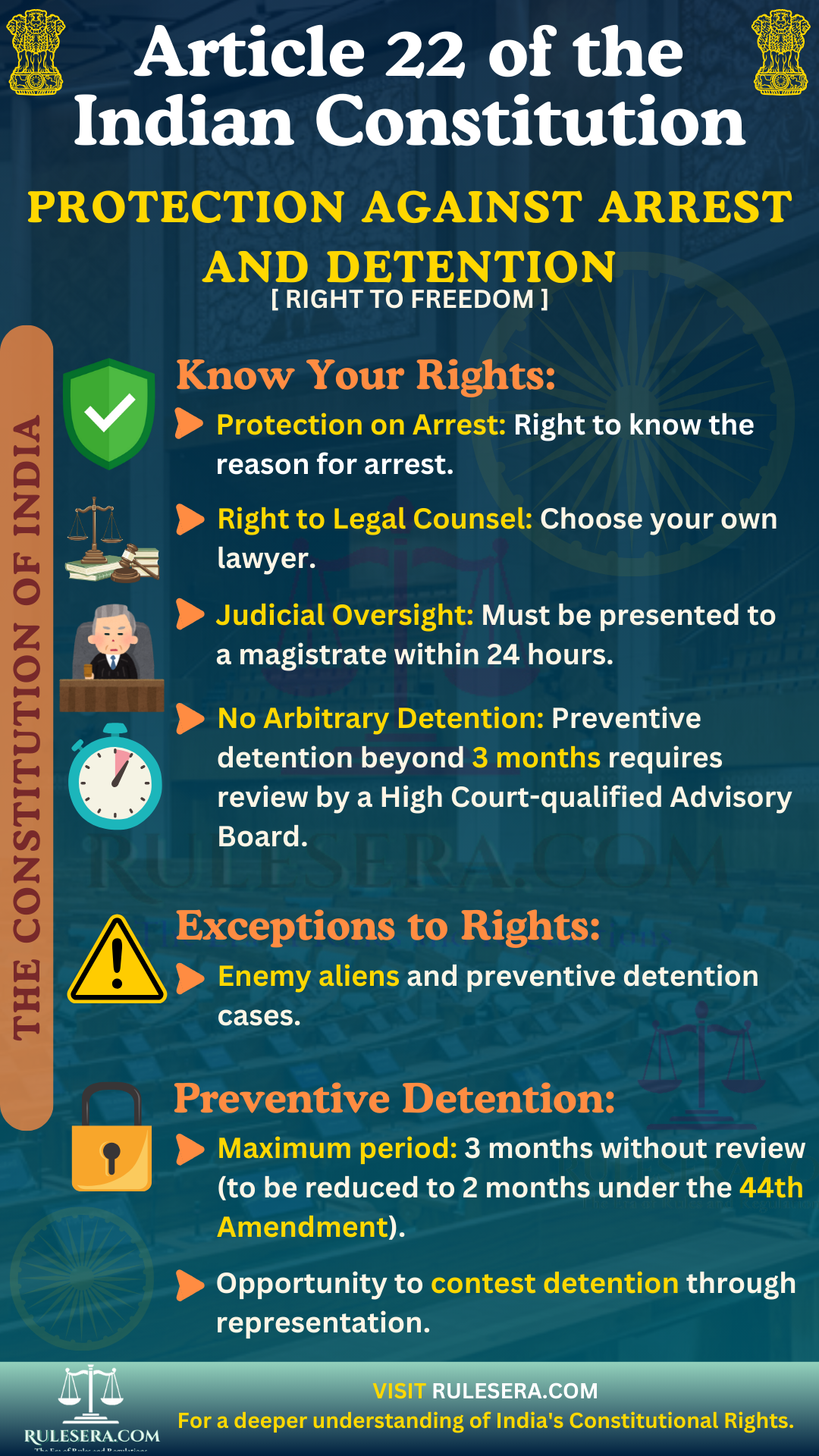Part III: Fundamental Rights
Article 22: Protection Against Arrest and Detention in Certain Cases:: Right to Freedom

(1) No person who is arrested shall be detained in custody without being informed, as soon as may be, of the grounds for such arrest nor shall he be denied the right to consult, and to be defended by, a legal practitioner of his choice.
(2) Every person who is arrested and detained in custody shall be produced before the nearest magistrate within twenty-four hours, excluding travel time, and cannot be detained further without a magistrate’s authority.
(3) Clauses (1) and (2) do not apply to enemy aliens or persons detained under preventive detention laws.
Explanation
Article 22 provides essential protections against arbitrary arrest and ensures judicial oversight. It mandates the presentation of an arrested individual before a magistrate within 24 hours, except in preventive detention cases, safeguarding against prolonged detention without due process.
Key Aspects of Article 22
- Rights on Arrest: Ensures arrested individuals are informed of the grounds for their arrest and have the right to legal representation.
- Judicial Oversight: Requires prompt presentation before a magistrate, preventing unlawful detention.
- Preventive Detention Limits: Preventive detention without advisory board approval is limited to three months, with certain exceptions under parliamentary law.
Real-Life Applications
In Jammu and Kashmir, the Public Safety Act (PSA) exemplifies preventive detention, permitting up to two years of detention without trial. The PSA has raised debates on the balance between national security and individual liberties.
Frequently Asked Questions (FAQs):
Preventive detention involves detaining individuals deemed a potential threat to public order or national security, even before a crime is committed.
Detained individuals must be informed of the reasons for arrest and have the right to legal counsel. They must also be presented before a magistrate within 24 hours, unless under preventive detention.
Typically, preventive detention cannot exceed three months without an Advisory Board’s approval, though Parliament can legislate longer detention periods in certain cases.